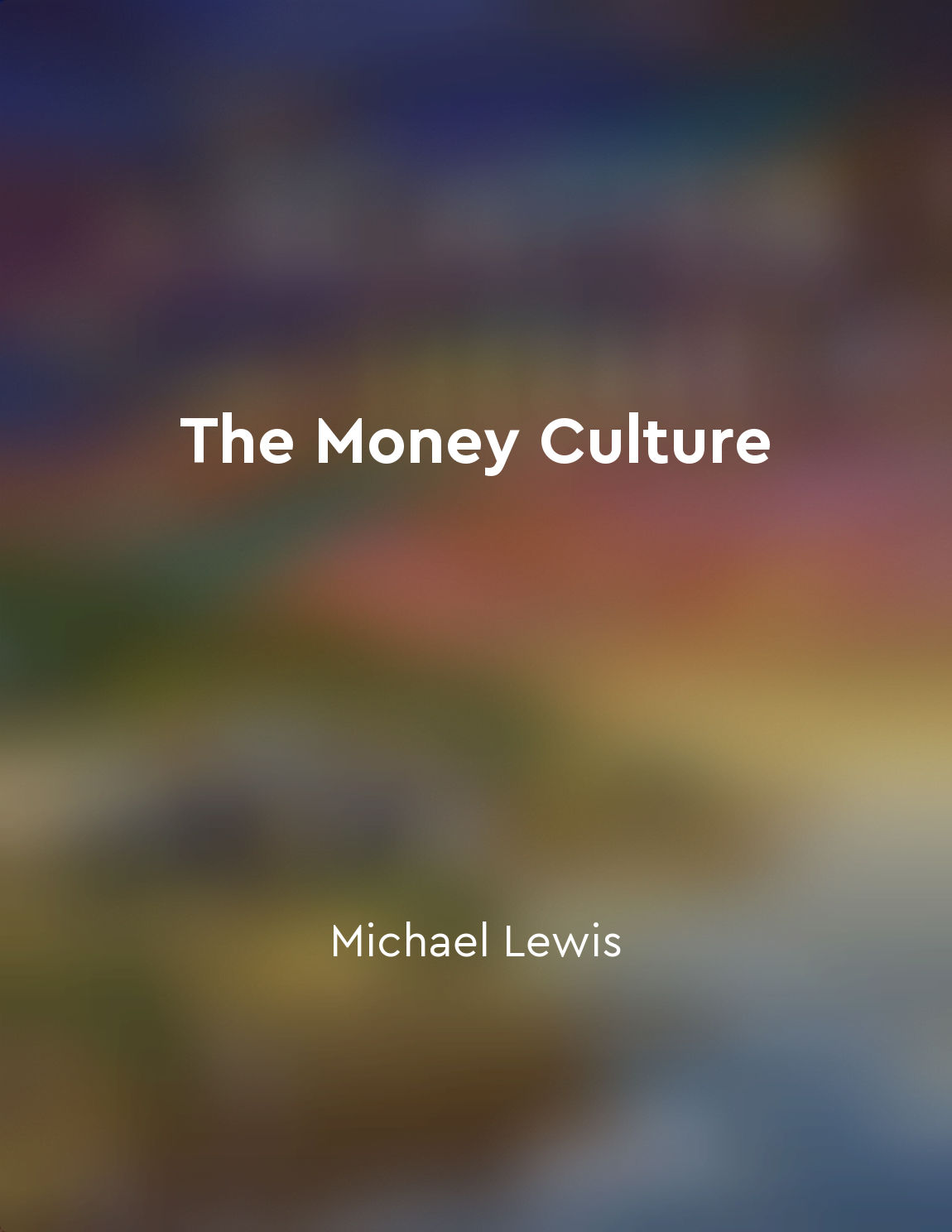Economic stability is threatened by the boomand-bust cycle of speculative markets from "summary" of A Short History of Financial Euphoria by John Kenneth Galbraith
The boom-and-bust cycle of speculative markets poses a significant threat to economic stability. This pattern of euphoria followed by panic has been a recurring feature throughout financial history. Investors are driven by irrational exuberance during booms, leading to excessive speculation and inflated asset prices. This behavior creates a false sense of prosperity and encourages further risk-taking. However, this unsustainable growth eventually reaches a tipping point. The bubble bursts, triggering a sudden and severe market correction. Panic sets in as investors rush to sell their assets, causing prices to plummet. The euphoria of the boom quickly turns into despair during the bust phase. The consequences of these speculative bubbles are far-reaching. The rapid rise and fall of asset prices can destabilize financial markets, leading to widespread economic turmoil. Businesses may struggle to obtain financing, consumers may cut back on spending, and unemployment rates may rise. The ripple effects of a market crash can be felt across the entire economy. Moreover, the boom-and-bust cycle perpetuates a cycle of boom and bust, creating a vicious cycle of euphoria and panic. As investors witness the aftermath of a market crash, they may become more cautious and risk-averse in their investment decisions. This can lead to a prolonged period of economic stagnation as confidence and investment remain low. In order to prevent these destructive cycles, it is essential to recognize the warning signs of speculative excess and take measures to curb excessive risk-taking. Regulators and policymakers play a crucial role in maintaining financial stability and preventing the recurrence of financial euphoria. By learning from the lessons of history, we can strive to build a more resilient and stable financial system.Similar Posts
International financial markets are subject to volatility
International financial markets are subject to volatility due to various factors that can cause sudden and unpredictable change...
Derivatives can be used to hedge against risk
Derivatives can play a crucial role in managing risk. Companies face various risks in their day-to-day operations, ranging from...

International financial markets offer opportunities for diversification
International financial markets provide investors with the opportunity to diversify their portfolios across different countries...

Corporate culture emphasizes profit over ethics
In the world of finance, the prevailing ethos is one that places profits above all else. Ethics are often seen as a hindrance t...
Bubbles arise from positive feedback mechanisms
Bubbles are a fascinating phenomenon that can arise in various markets, from stocks to real estate. These bubbles are not rando...
Capital flows drive foreign exchange market dynamics
Capital flows play a critical role in determining the exchange rate of a country's currency in the foreign exchange market. The...
Market optimism led to speculation
Market optimism, that most enduring and dangerous of all investment emotions, was the driving force behind the speculative feve...
Caution is advised in financial markets
The wise investor, always alert to the caprices of the financial markets, understands the necessity of caution in navigating th...
Excessive borrowing amplifies the impact of financial euphoria
The financial world is a place where emotions often run high. When people see others making money, they want to get in on the a...
